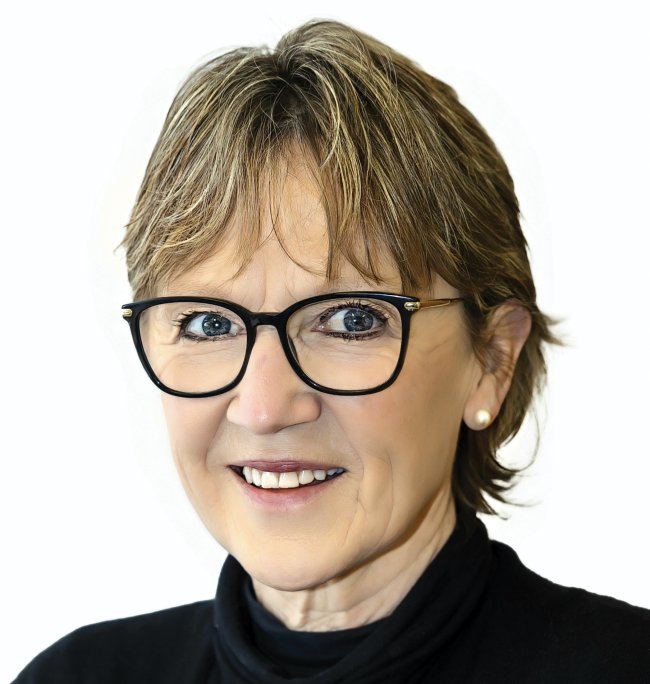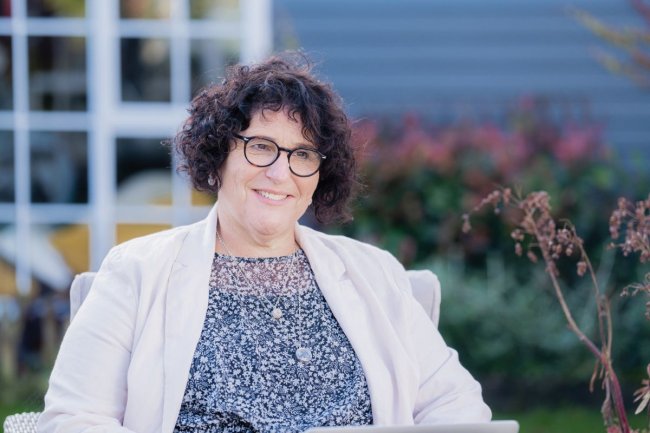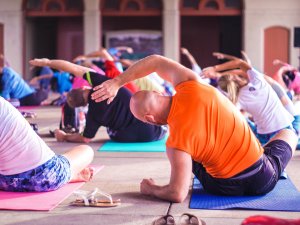Respiratory physician Lutz Beckert considers chronic obstructive pulmonary disease management, including the prevention of COPD, the importance of smoking cessation and pulmonary rehabilitation, and the lifesaving potential of addressing treatable traits. He also discusses the logic of inhaler therapy, moving from single therapy to dual and triple therapy when indicated, as well as other aspects of management
A helping hand with self-care: Professional supervision – because you’re worth it
A helping hand with self-care: Professional supervision – because you’re worth it

Kia ora, please enjoy our Summer Hiatus selection of stories and comment from throughout 2023, curated by our editorial team. This article was first published on 13 September. We will be back from our summer break on 15 January. Happy reading
Chosen by Fiona: Had a tough year? Two nurse practitioners suggest professional supervision is a good option for those seeking support to avoid or recover from professional burnout
We can only do as Supplied much as we can do and we shouldn’t be going home feeling guilty about it
Reporter Fiona Cassie talks to two nurse practitioners who say professional supervision can protect the health of clinicians and keep them in the workforce
Rotorua nurse practitioner Ros Rowarth has worked 34 years in primary care and says she has never known a time when “everybody is just so exhausted”.
The health system is “slammed” and this is bringing home the need for professional supervision, say Ms Rowarth and Otago rural NP Kate Stark.
Ms Stark, who has worked in primary care for 18 of her 35 years as a nurse, says morale is well down, with “people pushed to their limits in terms of capacity”.
The two NPs recently started offering professional supervision while still working clinically. They are among 20 nurses and a number of GPs nationwide now offering supervision.
The NPs say the need in primary care right now is “huge”.
Since 2016 Ms Rowarth has been an NP at Ranolf Medical Centre, a practice she joined 34 years ago as a midwife and practice nurse.
The veteran nurse leader has never “stood still” in her decades at Ranolf, taking on clinical nurse leadership and governance roles, including time on the General Practice NZ executive.
Then, as COVID-19 hit in 2020, after mentoring and supporting nurses and students for many years, she gained a postgraduate certificate in professional supervision from the University of Auckland.
Little realising, she says, how much more important supervision was about to become as the healthcare system was “slammed”.
Pandemic demands at the approximately 12,000-patient practice delayed the formal launch of her supervision venture. It was a time for “all hands on deck”. But her first clients, mostly senior nurses and NPs, started coming in via word of mouth in 2021.
Two years on, she still works 35 to 40 hours a week as an NP but hopes to gradually step up her professional supervision work and step down her clinical hours.
Supervision can play a crucial role in helping nurses cope with the current work pressures, she says. “My hope is that I will be helping nurses stay longer working and stay well working, because we are losing nurses.”
Her clients to date have come mostly from general practice, some from other private healthcare services and one from Te Whatu Ora. Increasingly, employers regard supervision as valuable for nurses: “I haven’t had anybody [who] had to pay for themselves yet.”
Some professions have monthly professional supervision built into their contract. NPs are expected to receive an hour’s professional supervision a month.
Nursing now involves more autonomous decision-making and “some of those decisions can come back to haunt us”, says Ms Rowarth, who called her supervision venture Creating the Space.
Supervision can offer confidential and objective support to work through decision-making or other professional issues, she says.
“[Nurses] are not coming to me for the answers, they are coming to me to help them formulate what they are going to do,” Ms Rowarth says.
“I think burnout is quite an over-used expression but I think it’s absolutely true for a lot of people in our current environment,” she says. And burnout affects resilience.
“In days gone by, you’d have to have two broken legs basically before you took a day off work. But people now, much more realistically, are taking days off when they need it…[they] are struggling to cope.”
In her own Health Care Home practice, the day can start with 80 to 90 requests for same-day acute consultations; these must be triaged to the 20 available appointments. “People don’t have quiet days any more,” says Ms Rowarth.
As a supervisor, she hopes to help nurses develop coping strategies – “and also to accept that it’s not their fault the health system is like this”.
“We can only do as much as we can do and we shouldn’t be going home feeling guilty about it,” she says.
Ms Stark started getting professional supervision eight years ago, while completing her NP studies, and found it “extremely beneficial”.
But as a rural practitioner, she found the travel time to access face-to-face supervision problematic.
“That’s where the idea came from to complete the training [as a supervisor] so I could offer supervision to others virtually.”
Ms Stark, like Ms Rowarth, has been an NP since 2016 and likewise has been offering informal supervision and mentoring support to colleagues for years. The NP is currently working 0.4 FTE alongside the single GP at the 1800- patient West Otago Medical Centre in Tapanui. She also works one weekend in four as a Primary Response In Medical Emergencies (PRIME) practitioner and one night on call a week.
As a long-standing PRIME practitioner and NP, she became aware of the importance of clinician self-care for retaining resilience. She formalised her supervision work with an intensive two-day in-person training programme, offered via the College of Nurses Aotearoa, and recently launched her venture, SuperVisionNZ, to offer supervision and mentorship virtually and in person.
Professional supervision to her is “one-on-one protected time” for health professionals offering problem-solving in a confidential space alongside mentorship, professional development and career growth.
Her own style has a “strong lean” towards encouraging work–life balance: helping clinicians to allow themselves enough time for “normal life” outside of work. Imbalance leads to loss of resilience, lower productivity and the risk of burnout, she says.
Practice nurses, hospital nurses, NPs and NP interns make up her clients to date, some of whom pay their own way and others whose workplaces, including general practices, cover the fee.
Ms Stark encourages clients to have supervision during normal working hours and to seek funding support from employers.
She has been saddened by the coalface experiences nurses have shared in supervision. “It makes me really worry about the profession. I always think there’s been a place for professional supervision but I think there’s a greater need now than [there was] pre-COVID.”
Ms Rowarth emphasises that professional supervision is different from clinical supervision. “I’m not going into a workplace and watching how somebody works.”
It’s also not counselling or performance appraisal, “it’s a safe space with no judgement”.
Sometimes it might just be the nurse sharing that they are worn out and worn down by busy-ness. Supervision can help them work through managing their workload, including when and how to say “no” to work that other team members could do.
Professional supervision was first developed in the US for social workers before widening to other health professionals in nursing, medicine and mental health.
For New Zealand nurses, supervision is a “regular, facilitated, uninterrupted, reflective process” providing a safe, confidential space to turn their “full attention to themselves and their own practice”, says a College of Nurses Aotearoa fact sheet.
Reflections include professional knowledge, ethical and legal requirements, and restorative strategies to address challenges such as moral distress, the potential for burnout and compassion fatigue.
The national mental health and addiction workforce centre Te Pou defines professional supervision as focusing on developing a person’s skills, understanding, abilities and ethical requirements in practising their profession.
By contrast, activities like coaching, mentoring, performance appraisal and clinical case reviews are “very useful” but are “not supervision”, the organisation points out.
- Focus on self-care, whether it is time in the sun or a bike ride or other sporting/hobby activity to help mood and energy levels.
- Set good boundaries around your workload – try to work the hours you are contracted.
- Negotiate time in the working day for non patient-facing duties such as results and correspondence.
- Take regular breaks during the day and try for team morning tea or afternoon tea breaks to improve morale in the workplace.
- Learn to say “no” when needed.
- Communicate with your team if overloaded to try to find solutions.
- Remember it is okay to not be okay and to ask for help.




![Kindness and compassion [Image: Kelly Sikkema on Unsplash]](/sites/default/files/styles/cropped_image_4_3/public/2023-06/kelly-sikkema-XX2WTbLr3r8-unsplash.jpg?itok=LLp7lcft)




![Barbara Fountain, editor of New Zealand Doctor Rata Aotearoa, and Paul Hutchison, GP and senior medical clinician at Tāmaki Health [Image: Simon Maude]](/sites/default/files/styles/thumbnail_cropped_100/public/2025-03/Barbara%20Fountain%2C%20editor%20of%20New%20Zealand%20Doctor%20Rata%20Aotearoa%2C%20and%20Paul%20Hutchison%2C%20GP%20and%20senior%20medical%20clinician%20at%20T%C4%81maki%20Health%20CR%20Simon%20Maude.jpg?itok=-HbQ1EYA)
![Lori Peters, NP and advanced health improvement practitioner at Mahitahi Hauora, and Jasper Nacilla, NP at The Terrace Medical Centre in Wellington [Image: Simon Maude]](/sites/default/files/styles/thumbnail_cropped_100/public/2025-03/2.%20Lori%20Peters%2C%20NP%20and%20advanced%20HIP%20at%20Mahitahi%20Hauora%2C%20and%20Jasper%20Nacilla%2C%20NP%20at%20The%20Terrace%20Medical%20Centre%20in%20Wellington%20CR%20Simon%20Maude.jpg?itok=sUfbsSF1)
![Ministry of Social Development health and disability coordinator Liz Williams, regional health advisors Mary Mojel and Larah Takarangi, and health and disability coordinators Rebecca Staunton and Myint Than Htut [Image: Simon Maude]](/sites/default/files/styles/thumbnail_cropped_100/public/2025-03/3.%20Ministry%20of%20Social%20Development%27s%20Liz%20Williams%2C%20Mary%20Mojel%2C%20Larah%20Takarangi%2C%20Rebecca%20Staunton%20and%20Myint%20Than%20Htut%20CR%20Simon%20Maude.jpg?itok=9ceOujzC)
![Locum GP Helen Fisher, with Te Kuiti Medical Centre NP Bridget Woodney [Image: Simon Maude]](/sites/default/files/styles/thumbnail_cropped_100/public/2025-03/4.%20Locum%20GP%20Helen%20Fisher%2C%20with%20Te%20Kuiti%20Medical%20Centre%20NP%20Bridget%20Woodney%20CR%20Simon%20Maude.jpg?itok=TJeODetm)
![Ruby Faulkner, GPEP2, with David Small, GPEP3 from The Doctors Greenmeadows in Napier [Image: Simon Maude]](/sites/default/files/styles/thumbnail_cropped_100/public/2025-03/5.%20Ruby%20Faulkner%2C%20GPEP2%2C%20with%20David%20Small%2C%20GPEP3%20from%20The%20Doctors%20Greenmeadows%20in%20Napier%20CR%20Simon%20Maude.jpg?itok=B0u4wsIs)
![Rochelle Langton and Libby Thomas, marketing advisors at the Medical Protection Society [Image: Simon Maude]](/sites/default/files/styles/thumbnail_cropped_100/public/2025-03/6.%20Rochelle%20Langton%20and%20Libby%20Thomas%2C%20marketing%20advisors%20at%20the%20Medical%20Protection%20Society%20CR%20Simon%20Maude.jpg?itok=r52_Cf74)
![Specialist GP Lucy Gibberd, medical advisor at MPS, and Zara Bolam, urgent-care specialist at The Nest Health Centre in Inglewood [Image: Simon Maude]](/sites/default/files/styles/thumbnail_cropped_100/public/2025-03/7.%20Specialist%20GP%20Lucy%20Gibberd%2C%20medical%20advisor%20at%20MPS%2C%20and%20Zara%20Bolam%2C%20urgent-care%20specialist%20at%20The%20Nest%20Health%20Centre%20in%20Inglewood%20CR%20Simon%20Maude.jpg?itok=z8eVoBU3)
![Olivia Blackmore and Trudee Sharp, NPs at Gore Health Centre, and Gaylene Hastie, NP at Queenstown Medical Centre [Image: Simon Maude]](/sites/default/files/styles/thumbnail_cropped_100/public/2025-03/8.%20Olivia%20Blackmore%20and%20Trudee%20Sharp%2C%20NPs%20at%20Gore%20Health%20Centre%2C%20and%20Gaylene%20Hastie%2C%20NP%20at%20Queenstown%20Medical%20Centre%20CR%20Simon%20Maude.jpg?itok=Z6u9d0XH)
![Mary Toloa, specialist GP at Porirua and Union Community Health Service in Wellington, Mara Coler, clinical pharmacist at Tū Ora Compass Health, and Bhavna Mistry, specialist GP at Porirua and Union Community Health Service [Image: Simon Maude]](/sites/default/files/styles/thumbnail_cropped_100/public/2025-03/9.%20Mary%20Toloa%2C%20Porirua%20and%20Union%20Community%20Health%20Service%20in%20Wellington%2C%20Mara%20Coler%2C%20T%C5%AB%20Ora%20Compass%20Health%2C%20and%20Bhavna%20Mistry%2C%20PUCHS%20CR%20Simon%20Maude.jpg?itok=kpChr0cc)